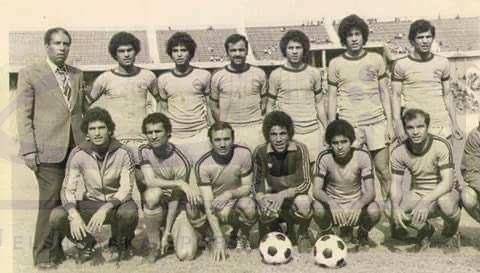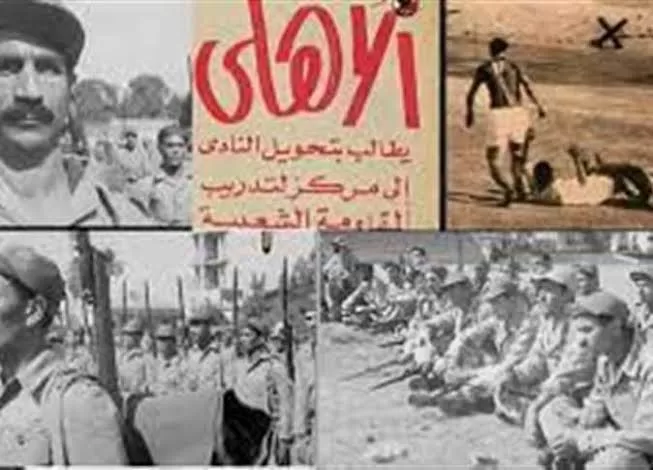Football was a deception tool ahead of October 6 too

Some people might think that sports and wars can never meet, with the former being a language of peace and the latter being the language of death and destruction.
Nevertheless, in 1973, the two different languages met, when the Egyptians used football as a camouflage tool to mask war plans by the Egyptian army against Israel which occupied Sinai then.
The sports arenaplayed a significant role in Egypt’s strategic deception, by far the largeststrategic deception operation in history. This was a plan that was executed by an entire people.
At the very moment Egyptian troops crossed the Suez Canal, stormed the Bar Lev Line and raised the Egyptian flag triumphantly in Sinai, the players of Ghazl El Mahalla and El Tayaranfootball teams were engaged in match and vied for points in the Egyptian Premier League.
The match continued until 4:30 PM on October 6, despite the issuance of multiple military statements announcing the start of the battle and the crossing of Egyptian forces.
The match concluded, marking the final contest of the season.
The Egyptian Football Association subsequently decided to cancel the league out and channel the funds specified to it to the army.
Football clubs opened their doors to the Fedayeen (military groups willing to sacrifice themselves), providing them with training facilities and opportunities to participate in the battle.
However, on October 5, the day before the match and the crossing, Egyptian newspapers were diligently implementing the deception plan.
Instructions were given to newspaper editors to allocate more space in their newspapers to sports, football matches, and football players, especially Egyptian forward, Hassan Shehata, who had just returned from Kuwait where he played for Kuwaiti Sporting Club, Kazma.
The newspapers also dedicated a lot of space for the search by Egyptian football teams for English coaches.
While the Football Association, clubs, and perhaps even the newspaper editors may not have been aware of Egypt’s crossing plan, they were certainly integral parts of it, even if unwittingly.
In the annals of Egyptian sports, the match between El Mahalla and El Tayaran will forever be remembered as the most celebrated football contest.
Its historical significance lies, not in its sporting outcome, but in its connection to one of Egypt’s greatest moments.
At 2:30 PM on October 6, the stands of the Tersana Club were filled with fans eager to witness the football match between Ghazl El Mahalla and El Tayaran.
El Mahallaclinched the Egyptian premier league in the 1972-1973 season by a single point over Zamalek.
The match commenced at 2:30 PM, just half an hour after Egyptian forces crossed the canal.
The game proceeded normally until El Mahalla’s players noticed that their fans were inexplicably cheering for the El Tayaran team and its players during the first half.
This unusual behaviour caught the attention of everyone on the field, prompting inquiries about the reason behind the partisan support.
The response was both unexpected and poignant. El Mahalla fans had heard the radio announcement, delivered by renowned media figures Helmy El Balk and Yehia Abdel Aleem, regarding the start of the battle and the Egyptian soldiers’ crossing of the canal.
Moved by the news, the players chanted for victory and expressed support for El Tayaran as a tribute to the roleplayed by the air force in the battle and the initial airstrikes.
The players of both teams, deeply moved by the situation, decided to prayfor the soldiers engaged in the battle.
Referee, Ibrahim Al-Juwaini, approved their request to complete the match as a gesture of respect for the fans present.
The game concluded in a positive draw, as the fans in the stands cheered for both teams.
The memories of that match remain vivid in the minds of the players of El Mahalla and El Tayaran, as if the events unfolded just yesterday.
The match was held under ordinary circumstances, with no one on the field aware of the ongoing war in Sinai.
The players, however, were swept away by a wave of euphoria as they celebrated the Egyptian army’s crossing of the Suez Canal and the reclamation of their land.
On the evening of that day, the Football Association convened and decided to cancel the competition out and suspend football activities in Egypt so that everyone can fully concentrate on the war. The Egyptian League did not resume until the following season.
This remarkable story showcases how Egyptian sports and football played a significant role in the battle and the grand plan to deceive the Israeli enemy.
The football match between El Mahalla and El Tayaran, a contest that will forever be etched in Egyptian memory, serves as a testament to the nation’s unwavering spirit and determination during a time of great conflict.


